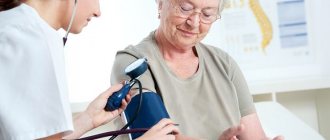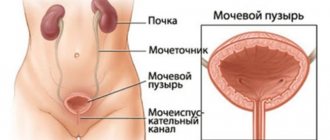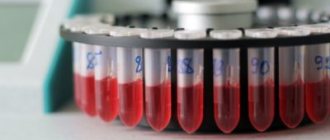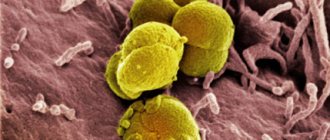Menopause (menopause) is a natural state of a woman, the same as menstruation or pregnancy, it is a natural process of extinction of a woman’s sexual function, associated with changes in the activity of the ovaries and pituitary gland. At what age does menopause begin? What symptoms do women experience? And what are the best herbs to use to help the body?
Menopause is the last independent menstruation due to ovarian function (the date is set retrospectively, namely after 12 months of absence of menstruation). During this time, the amount of estrogen, the female sex hormone, decreases, and this process is accompanied by a variety of changes in health. The decline of ovarian function is a long process that takes 5–6 years, and sometimes more.
What is menopause?
The term "climax" translated from Greek means "step". There is an opinion that this is one of the most difficult stages in a woman’s life, associated with the decline of sexual function and a steady increase in the level of gonadotropins, indicating the onset of menopause.
The concept of menopause combines several periods:
- Premenopause (premenopause) - several years preceding the onset of menopause. During this period, the production of estrogen by the ovaries gradually decreases. Premenopause can occur at the age of 40-45 years, less often - at 30-40 years.
- Menopause is a period of stable cessation of menstruation and intermenstrual cycles (their absence for a year). Menopause is an early menopause that lasts for five years after the cessation of menstruation.
- Postmenopause (late menopause) lasts up to 70-75 years.
- Old age is the period of life after 75 years.
Issues regarding the quality of life of women during menopause are quite acute and relevant. In this case, special attention is paid to the following parameters: physical and mental well-being, social and role functioning, as well as a general objective perception of the state of one’s health.
https://youtu.be/ezllAEVsj6U
Introduction to Menopause
Before determining at what age menopause occurs, it is necessary to understand how it manifests itself and what consequences it causes. This period in the life of any woman goes by different names - menopause, menopause or menopause. Many people call menopause menopause, but this is not entirely true. This is due to the fact that menopause covers an extremely long time in a woman’s life, and menopause is only a part of this period.
So, menopause combines concepts such as premenopause, menopause and postmenopause. If you are trying to find out what time menopause occurs, then you should pay attention to premenopause, as the first stage of the menopause.
Premenopause marks the beginning of disruptions in the menstrual cycle, up to its complete stop. A woman's body begins to lack important hormones, especially estrogen. About 90% of all women of transitional age clearly feel such changes in the body2.
The absence of a menstrual cycle for the entire last year means the transition to the menopause stage. Most often, menopause overtakes a woman at the age of 50-51 years. This is followed by the postmenopausal stage - the body completely stops producing sex hormones2.
Factors that influence a woman’s body during menopause
- Natural aging processes, accompanied by receptor and mediator changes, death of nerve cells, decreased motor activity, increased cognitive impairment and exacerbation of depressive processes.
- The presence of chronic somatic and neuropsychic diseases that develop during life under the influence of unfavorable environmental factors, as well as due to genetic predisposition. By the age of 45-50, many women are diagnosed with atherosclerosis, obesity, diabetes mellitus, arterial hypertension, degenerative diseases of the musculoskeletal system, as well as possible anxiety disorders and episodes of depression.
- The influence of menopausal hormonal changes on the central and peripheral nervous system. The most characteristic peripheral signs of menopausal syndrome are hot flashes and genitourinary disorders. The main clinical manifestations of the restructuring of the central nervous system include endocrine, metabolic, psycho-vegetative, cognitive and motivational.
- Psychosocial status of a woman. In this case, an important role is played by the financial, domestic and professional situation; the presence or absence of a sexual partner, the departure of adult children from home, disharmony in intimate relationships, and the peculiarities of perceiving oneself as a woman.
TO LIVE WELL! AND LIVING IS RIGHT!
Another important “component” in the treatment of menopause in a woman is the correct organization of her life. The advice is simple - but surprisingly effective!
And you can start – as usual, from the very beginning. In the morning. Now try to wake up at the same time, and for this, of course, go to bed at the same time. Adequate sleep is the “foundation” for restoring the body’s strength when it is “under pressure” from symptoms.
Continue with a contrast shower. This is both a boost of energy and a beneficial procedure for the skin, and also an excellent workout for the internal thermoregulation system. It will now be easier to deal with hot flashes.
Pay attention to your diet. More “light”, vegetable and fruit, less flour, salty and fried. After all, for a woman, menopause, as a rule, also means “extra pounds.”
And one more thing - be sure to pay attention to your own “rich inner world.” Drive away thoughts on the topic “The best years are behind...” and “Menopause is the end of everything...” For a woman, menopause is simply a new stage of life, in which there will certainly be new emotions and new discoveries. A good mood is what is especially needed now. This is what will help you cope with any symptoms, as they say, “one or two!”
Symptoms of menopause in women
Symptom No. 1 - psycho-emotional menopausal syndrome
At the moment, many people who are not directly related to medicine are familiar with terms such as “menopausal neurosis”, “menopausal depression”, “involutional hysteria”. Of course, these psycho-emotional disorders can occur during other periods of a woman’s life, but during menopause they are much more common and, as a rule, are accompanied by more complex somato-vegetative disorders. Women who have entered menopause often experience increased fatigue, loss of interest in themselves and others, unmotivated anxiety, restlessness, suspiciousness, excessive sensitivity, increased vulnerability, fear of impending old age, tearfulness and lability of mood.
Symptom No. 2 - sleep disturbance
Sleep disturbance is one of the most characteristic manifestations of menopause. About 60% of women during menopause complain of an increase in the time it takes to fall asleep, deterioration in sleep quality and frequent awakenings at night. When choosing treatment tactics, the causes of dyssomnia are taken into account. During menopause, they may be associated with central and peripheral nervous disorders. CNS disorders include vascular and toxic-metabolic brain disorders and emotional disorders (depressive states, increased anxiety, fears).
During sleep, women of menopausal age often experience respiratory disorders (snoring, respiratory arrest) and movement disorders (the so-called “restless legs” syndrome), as well as morning headaches, increased blood pressure and daytime sleepiness.
Disorders of the peripheral nervous system include nocturia (frequent urination at night), nocturnal hot flashes, parasthesia in the hands (numbness, tingling, crawling sensation) and other disorders that occur or worsen at night.
Symptom No. 3 - vegetative and psycho-vegetative disorders
Most often, vegetative permanent or paroxysmal disorders are combined with emotional disorders. Many women complain of discomfort in the left side of the chest, irregular heart rate, increased heart rate, shortness of breath, surges in blood pressure, disorders of the digestive tract, as well as chills or hot flashes. Sometimes it is possible to develop attacks of aggression, fear or anxiety, developing into panic attacks. There are frequent headaches and back pain.
Symptom No. 4 - deterioration in performance
Cognitive impairments during menopause are manifested by deterioration in performance, a decrease in the speed of switching from one type of activity to another, weakening of memory and attention disorders. Most often, this condition is a consequence of emotional problems, that is, it is reversible.
Symptom No. 5 - metabolic and endocrine disorders
Women during menopause often experience a change in eating behavior, an improvement or deterioration in appetite, an increase in body weight, and fluid retention in the body, leading to the formation of edema. Joint pathologies, osteoporosis and cardiovascular diseases become frequent “companions” of postmenopause.
Symptom No. 5 - psychosocial syndrome
Some women who have entered menopause, against the background of dyssomnic, cognitive, psycho-vegetative and sexual disorders, experience difficulties in communication and social adaptation, develop isolation and stress, lack of mutual understanding in the family, and difficulties at work. Of course, all this causes a decrease in the quality of life and can even provoke the development of serious diseases. That is why women who have immature styles of psychological defense and ineffective mechanisms for coping with stress require medical help.
Symptom No. 6 - sexual dysfunction
According to statistics, 50-75% of women during menopause experience a decrease in sexual activity, or rather, a decrease in interest in sex and a decrease in the value assessment of sexual attitudes.
This condition is explained by hormonal changes that occur in the female body during the premenopausal period: fading ovaries produce fewer estrogens, androgens and progesterone.
Insufficient production of estrogen leads to thinning of the vaginal mucosa, slower and decreased production of vaginal lubrication and the development of dyspareunia (pain during sexual intercourse).
A deficiency of free testosterone causes a decrease in libido, and insufficient production of progesterone provokes lethargy, fatigue, headaches and other negative symptoms that significantly reduce interest in sexual contacts.
Age of menopause
The average age of onset of menopausal changes is 45–48 years. In some women, under the influence of stress, the first signs of menopause may appear before the age of 40, while in others - at the age of 55. The average length of menopause is 8–10 years.
- Premenopause. On average, it begins at the age of 45, although this is very individual - sometimes the first signs appear at the age of 38–40, and sometimes women do not feel any changes until almost their 50th birthday. The ovaries are still working, but menstruation becomes irregular and the intervals between them increase. During this period, a woman may experience hot flashes for the first time; some note a decrease in libido, bouts of blues and headaches.
- Menopause. The average age of a woman when she reaches menopause is 50–53 years. The ovaries stop working, menstruation stops, although they can still come at very large intervals. Changes caused by a lack of estrogen begin to appear especially clearly. During this period, bones become fragile, and the development of cardiovascular diseases and even diabetes is possible.
- Postmenopause. This term refers to the period from the last menstruation to the end of life. During postmenopause, all the unpleasant symptoms that plagued menopause usually disappear. Most menopausal symptoms occur during perimenopause and menopause. Both of these periods together can last on average from 5 to 10 years.
Menopause in women: treatment
Currently, specialists use several strategies and tactics for managing patients suffering from menopausal syndrome, which is a multidisciplinary problem.
Elimination of unpleasant symptoms
Elimination of individual symptoms of menopause can normalize a woman’s physical condition and restore her quality of life. Thus, to eliminate nocturnal hot flashes and correct night sleep, it is recommended to use clonazepam (an antiparoxysmal drug), and to relieve restless legs syndrome, dopamine receptor antagonists and dehydroxyphenylalanine are prescribed.
With high blood pressure, patients are advised to continuously take AT2 blockers and ACE inhibitors. For elevated blood glucose levels, medications that lower blood sugar are prescribed; for insomnia and neuropsychiatric disorders, sleeping pills and sedatives are prescribed.
Courses of therapeutic exercises, physiotherapeutic procedures, hydrotherapy, massage and sanatorium-resort treatment have proven themselves well as symptomatic therapy.
Hormone replacement therapy
According to experts, the most adequate method of treating menopausal syndrome is hormone replacement therapy. Its prescription is advisable if a woman during menopause begins to have complications such as: cardiovascular pathologies, central obesity, severe osteoprosis, type II diabetes mellitus, etc. It should be emphasized that the prescription of hormonal treatment, which has a number of contraindications, is the prerogative attending physician. The woman is first given a comprehensive diagnostic examination.
Contraindications for hormone replacement therapy:
- Uterine bleeding of unknown etiology;
- Malignant tumors of the female genital organs;
- Mammary cancer;
- Recent stroke or heart attack;
- Thrombophlebitis;
- Severe liver and kidney pathologies;
- Thyroid diseases;
- Preparation for surgery.
Combined hormone replacement therapy drugs contain small doses of progesterone and estrogens. For patients who have undergone uterine amputation, hormone replacement monotherapy (Premarin, Progynova, Hormoplex, Estrofem, etc.) is indicated.
During premenopause, when a woman has not yet finished menstrual bleeding, Clymene, Femoston, Divina, Cycloprogenova, Divitren, Klimonorm are recommended to relieve discomfort and unpleasant sensations and normalize the cycle. Women who no longer menstruate are advised to take Livial or Cliogest.
Treatment of depression during menopause
To relieve psychovegetative syndromes, patients are prescribed the latest generation antidepressants (selective serotonin reuptake inhibitors). This group of drugs includes sertraline, fluoxetine, citalopram, etc.
Note
The use of antidepressants is justified in the presence of severe emotional and affective disorders. However, they can be prescribed in cases where there are contraindications to hormone replacement therapy, as well as if the patient does not want to take hormonal medications.
Psychotherapy for pathological menopause
If during menopause a woman develops a tendency to depressive reactions and an increased level of anxiety, she is prescribed psychotherapeutic treatment in combination with hormone replacement therapy and antidepressants.
The main task of psychotherapeutic correction is to normalize self-perception and reduce stress levels. The patient is prescribed hypnosuggestive psychotherapy, sessions of psychoregulation, relaxation and autogenic training are conducted.
Drugs and vitamins that normalize metabolic processes
At the moment, in the treatment of pathological menopause, vitamin and mineral preparations are widely used, containing active components that help enhance fat and carbohydrate metabolism. These drugs stimulate the work of the ovaries, and also, due to the presence of calcium and vitamin D, prevent the development of osteoporosis.
The most important vitamins during menopause are B vitamins, ascorbic and folic acid, vitamin A, D and E.
B vitamins help improve energy balance, normalize the functioning of the central nervous system and PNS and stimulate the production of estrogen by the adrenal glands. In combination with vitamin C, magnesium and zinc, this group of biologically active substances participates in the formation of active compounds that regulate hormonal balance and ease the course of menopause.
Tocopherol (vitamin E) improves the functioning of the female reproductive organs, in combination with vitamin C, relieves hot flashes, reduces vaginal dryness and breast swelling, reduces weakness and irritability.
Calciferol (vitamin D) is involved in the absorption of calcium, promotes its deposition in bone tissue and prevents the development of osteoporosis.
Traditional medicine for menopause
How can we help this state of the body? And herbs that contain so-called “phytohormones” will help us with this, replenishing the lack of estrogen. The most proven healing plants for eliminating the above conditions are: birch, St. John's wort, blackberry, primrose, peony, chamomile, yarrow, sage and others.
For uterine bleeding during menopause , it is effective to use birch leaves: pour 2 teaspoons of small dry birch leaves into 1 cup of boiling water, leave for 30 minutes and drink 1/4 cup 3 times a day before meals. Birch decoction not only stops bleeding, but also normalizes the menstrual cycle.
St. John's wort for depression or mild psychogenic disorders. St. John's wort is a good antidepressant, so for menopausal conditions it is very good to use the herb of this plant. At home, depression can be treated as follows: pour 2 teaspoons of St. John's wort herb with a glass of boiling water, leave until cool, and strain. Take 1-2 glasses in the morning and evening.
Salvia officinalis leaves help with increased sweating. A strong tea is prepared from it (3 teaspoons of sage leaves are poured into 1 cup of boiling water, boiled in a sealed container for 5 minutes, then removed from the heat, filtered, allowed to cool and taken 1-2 cups orally). But if you have stomach problems, then you need to prepare a weak concentration of tea. To do this, instead of 3, you need to take 1.5 teaspoons of plant leaves.
For neuralgia, migraines, menstrual irregularities caused by menopausal disorders, traditional healers recommend primrose (primrose). In Bulgaria, primrose infusions are widely used for neuroses and insomnia.
To do this: pour 10 g of dried flowers into 1 glass of boiling water and filter after 15 minutes. Take this infusion 2 hours before bedtime. In Germany, dried primrose flowers are used to make a tea that strengthens the nerves, and their decoction is mixed with wine.
For insomnia during menopause, it is recommended to turn to peony. Peony evasive is a plant for the treatment of patients with disorders of the nervous system, among which tearfulness, irritability, intense itching, fear neuroses, depression, poor sleep, loss of appetite, lethargy followed by excitability predominate. These symptoms are very common in women during menopause.
At home: a tincture of peony leaves and roots (for this, 150 grams of fresh peony roots and leaves in equal parts, washed and finely chopped, pour 0.5 liters of vodka and infuse for 3 weeks. Then filter and take up to 2-3 teaspoons during the day. A course of treatment (25–30 days) is used as a sedative for neurasthenia with increased excitability, insomnia, hypochondria, vegetative-vascular syndrome, and increased lethargy.
During menopause, it is very important for women to carefully consider and, if necessary, revise their diet. Monitor your weight, blood cholesterol levels, and take vitamins and minerals.
Folk remedies to relieve hot flashes
When hot flashes occur, which are often one of the most painful symptoms of menopause, it is recommended to use medicinal herbs as alternative remedies. However, this technique, like any other, has side effects, so before starting treatment, it would be wiser to consult a specialist.
To relieve menopausal hot flashes, traditional healers recommend the use of plant estrogens, contained in sufficient quantities in soy products.
In this situation, the greatest effect is not from biologically active food additives containing soy components, but directly from soy products obtained by fermentation.
Another herbal remedy for relieving hot flashes is black cohosh. It is allowed to be taken for no more than 6 months. One of the side effects is stomach upset.
Black primrose oil is also used to treat menopausal disorders. It is contraindicated in patients using blood thinners and can also cause diarrhea, nausea and vomiting.
Menopausal age in a woman: factors approaching
On average, the decline of ovarian function begins at approximately 45 years of age. Some representatives of the fair half note symptoms of menopause after 36 years. Early menopause is due to the following reasons:
- Thyroid disorders or other endocrine diseases. Menopause may begin earlier due to diabetes, hypothyroidism, obesity, etc.
- Diseases of the reproductive organs, genital surgeries, previous chemotherapy, etc. In case of serious gynecological diseases, sometimes it is necessary to remove the uterus and appendages; in such a situation, menopause occurs immediately after the operation, regardless of the patient’s age.
- History of abortion. Each termination of pregnancy is a great stress for the woman’s body, a serious hormonal shock, so we can say that an abortion brings the failed mother one step closer to menopause.
- Bad habits. Smoking and alcohol abuse quickly wear out all systems of the female body; as a result, the ovaries begin to lose functionality earlier than it was intended by the natural program.
- Frequent overwork, lack of sleep, hard physical labor and constant stress are the main enemies of women's health. For those representatives of the fair half who work a lot, menopause almost always begins prematurely.
Sometimes early menopause is the result of a genetic predisposition. It is genes that decide how many years a woman’s ovaries can work.
Many people think that late menopause is much better than early menopause. But in reality, when a woman continues to menstruate after 55 years of age, it may be due to some kind of illness. For example, the pathological causes of late menopause are:
- Gynecological disorders (fibroma, ovarian dysfunction, etc.).
- The presence in the body of malignant tumors that produce estrogens.
- Long-term use of drugs that affect the reproductive organs.
Genetic predisposition is the main factor determining the onset of menopause. However, no matter what age a woman's mother and grandmother stopped menstruating, she would like to start menopause later. This can be achieved: if you start prevention in time, it is quite possible to delay the onset of menopause and make its symptoms less bothersome.
https://youtu.be/DIONgmWsW-g
What is early menopause in women?
Early menopause is a fairly rare phenomenon, occurring in only 1-2% of women. Early menopause is very stressful for the female body, negatively affecting physical and mental health. In this situation, a woman loses the ability to conceive, since the secretion of female sex hormones, which for many years have had an effect on various tissues and organs of the female body, stops.
In recent years, there has been an opinion among experts that the condition of early menopause would be more appropriately called premature ovarian failure.
Causes of premature menopause
- Genetic predisposition;
- Viral infection;
- Autoimmune processes;
- Iatrogenic factors (surgical interventions on the uterus and ovaries, chemotherapy, radiotherapy);
- Idiopathic factors (smoking, fasting, adverse environmental influences).
Symptoms of early menopause in women
The development of menopause always occurs according to one of two scenarios:
- Complete depletion of the follicular apparatus (ovarian depletion syndrome).
- Insensitivity of the ovaries to gonadotropic stimulation (resistant ovarian syndrome).
In both cases, a woman with well-developed secondary sexual characteristics experiences secondary amenorrhea and infertility. With a high level of follicle-stimulating and luteotropic hormone, a low level of estradiol is observed, and characteristic symptoms of menopause appear: irritability, hot flashes, increased sweating, decreased memory and ability to work, and sleep disturbance. Already 1-2 years after the onset of menopause, osteopenia develops (decreased bone mass and bone mineral density), blood cholesterol levels increase, and osteoporosis may develop. Some women complain of itching, burning and dryness of the genitals. When taking hormonal drugs, there is a significant improvement in the condition.
Classification of climacteric disorders in premature ovarian failure
- Early symptoms. Vasomotor signs of menopause include an increase or decrease in blood pressure, chills followed by hot flashes, headaches, increased sweating, and tachycardia. Emotional-vegetative signs include decreased sexual desire, excessive irritability, weakness, drowsiness, increased anxiety and restlessness, decreased memory and a tendency to depression.
- Medium-term symptoms (signs that develop approximately 2-3 years after the onset of menopause). There are complaints of pain during sexual intercourse, vaginal dryness, burning and itching, frequent and painful urination, and urinary incontinence. Dryness and brittleness of nails and hair are also observed, rapid withering of the skin is noted, body weight increases and the type of female figure changes, and insulin resistance increases.
- Late metabolic disorders (observed after approximately 5-7 years). Cardiovascular pathologies (atherosclerosis, coronary heart disease) develop or worsen, and the development of postmenopausal osteopenia or osteoporosis accelerates.
Diagnosis of premature ovarian failure
Diagnostic measures for suspected development of early menopause include a physical examination in a gynecological chair and a thorough examination of the medical history. Next, the patient is prescribed laboratory and instrumental examination methods:
- Blood test for the hormones LH, FSH, TSH, prolactin and estradiol levels;
- Blood lipidogram (determination of lipid profile);
- Blood for tumor markers;
- Ultrasound of the internal genital organs;
- Mammography;
- Craniography;
- CT or MRI (if headaches are present);
- Densitometry of the lumbar spine (with prolonged amenorrhea).
Treatment of early menopause in women
Due to the fact that early menopause is associated with insufficient functioning of the ovaries (estrogen-produced function), in this situation the most effective are hormonal agents that contain estrogens. The dosage of hormones is selected based on age, and the regimen for taking hormone replacement therapy drugs depends on the presence or absence of menstrual bleeding.
Indications for hormone replacement therapy
- The presence of menopausal syndrome (hot flashes, insomnia, increased sweating, irritability, frequent mood swings, etc.);
- Genitourinary disorders (nocturia, dysuria, vaginal dryness);
- Complete cessation of menstrual function until the age of 40-45.
When selecting hormone replacement therapy drugs, the presence and extent of surgical interventions on the reproductive organs, the desire (or unwillingness) to normalize the monthly menstrual rhythm, decreased or absent sexual desire, the presence of liver pathologies, thrombophlebitis, heart attacks in relatives at a young age, as well as fear of pregnancy are taken into account. .
As hormone replacement therapy drugs for the early development of menopause, products containing natural estrogens or their analogues are used. There are three main hormone replacement therapy regimens used in clinical practice:
- Estrogen monotherapy. In women who have undergone hysterectomy, estrogen treatment can be prescribed continuously or in courses.
- Combination therapy (estrogens and gestagens) in a continuous mode.
- Combination therapy (estrogens and gestagens) in a cyclic mode.
Hormonal correction of premature ovarian failure helps normalize blood pressure, prevents the development of osteoporosis and atherosclerotic changes, promotes the disappearance of menopausal symptoms, and also ensures skin elasticity.
Due to the fact that hormone replacement therapy (HRT) has a lot of contraindications and side effects, treatment should only be carried out with the permission and under the supervision of a doctor.
Contraindications to HRT during early menopause
- Uterine bleeding of unknown etiology;
- Malignant tumors of the female genital organs;
- Mammary cancer;
- Recent stroke or heart attack;
- Thrombophlebitis;
- Severe liver and kidney pathologies;
- Thyroid diseases;
- Preparation for surgery.
How do you know when menopause is starting?
If you do not delve into special studies, you can understand that the menopause has begun by a change in your condition and the appearance of some symptoms that were not noticeable before.
Sometimes they resemble signs of premenstrual syndrome.
The onset of menopause can be compared to a domino effect: hormonal changes affect the functioning of the nervous system, disrupt metabolic processes, and all together this leads to immunological changes.
The first thing a woman may notice is a change in her menstrual cycle.
Fluctuations in estrogen levels make themselves felt. A decrease in their concentration activates the pituitary gland, which tries to “stimulate” the ovaries and increases the secretion of LH and FSH.
But this cannot significantly affect the gradual decline of the function of the gonads.
Menstruation can come regularly, but sometimes the cycle gets confused, the interval between them is significantly shortened or lengthened.
The discharge itself may also change (from spotting to heavy bleeding).
The severity of the changes depends on the accumulated baggage of gynecological problems.
Myoma, endometrial hyperplasia, endometriosis themselves lead to menstrual irregularities; by the time of menopause, these symptoms become more pronounced.
Manifestations of menopause are divided into three groups according to the time of their appearance:
- 1 Early are vasomotor, autonomic and emotional-psychic manifestations.
- 2 Delayed - appear 1-3 years after menopause - urogenital disorders (vaginal dryness, pain during intercourse, urination), aging of the skin and its appendages.
- 3 Late are symptoms that develop no earlier than 2-5 years after menopause, these include osteoporosis, atherosclerosis, heart disease, hypertension, insulin resistance, as well as decreased memory, vision and hearing.
It is the early signs that attract attention. They force women to see a doctor, unfortunately not always a gynecologist.
Diet to help you survive menopause
Even in ancient times, Eastern healers argued that there was a close connection between the physiological and pathological processes occurring in the body and the environment. Based on this, a clear conclusion was made: to alleviate the symptoms of menopause, it is necessary to adjust the diet, and then menopause will not be a tragedy, but a velvet season in a woman’s life.
Even with an increase in body weight, you should abandon grueling diets, as this can provoke the development of metabolic disorders and lead to depletion of energy reserves. But, at the same time, we should not forget that with age, the body’s need for calories gradually decreases. After fifty years, the daily caloric intake of food consumed should not exceed 2000-2100 calories.
During menopause, it would be wiser to avoid excessive consumption of tea and coffee, which interfere with the absorption of magnesium and calcium, which are essential components involved in the formation of bone tissue. You should also limit your consumption of sweets, sources of fast carbohydrates, and salty foods that promote increased excretion of calcium from the body. Also, in order to avoid the development of atherosclerosis, it would be wiser to avoid consuming fatty meat, mayonnaise, trans fats and sausages.
Products useful during menopause
- Whole grain bread (source of magnesium, B vitamins and dietary fiber);
- Soy products (source of dietary fiber and phytoestrogens);
- Lean meat (source of protein and iron);
- Low-fat fermented milk products (source of calcium and vitamin D);
- Vegetable oil (source of polyunsaturated fatty acids);
- Fatty sea fish (source of Omega-3 fatty acids);
- Fresh fruits and vegetables (source of β-carotene, dietary fiber, folic and nicotinic acid, vitamins A, C, K).
Physiological aging of the female body is an irreversible process that causes ambiguous attitudes towards itself. Some women perceive it calmly and contemplatively, and live taking into account the changes occurring in the body, while others resist reality, not wanting to change their usual foundations. However, in both cases, you can live a full, vibrant life, continue to work and strengthen family values.
Has menopause already begun?
Many older women are often interested in how to determine the onset of menopause. It’s quite difficult to miss such a stage of life. When menopause occurs, any woman immediately feels changes in the functioning of the body and often very clearly.
During menopause, especially during premenopause, a woman may experience unusual symptoms - an unstable mental state with mood swings, high or low blood pressure, sweating, tachycardia, dizziness, decreased sexual desire, hot flashes and many other unpleasant symptoms. Naturally, the main symptom is a disruption in the menstrual cycle, which is associated with a lack of estrogen production.
When menopause occurs and the doctor diagnoses that the symptoms are too severe and cause significant harm to the woman's daily life, a diagnosis is made - menopausal syndrome. In this case, symptomatic treatment or general prevention may be prescribed. Most often, effective MHT is used, which stands for menopausal hormone therapy. Following from the name, it should be clear that with such treatment, a woman begins to consume hormonal drugs that replenish the lack of hormones in the body. As a preventive measure, physical exercises are prescribed, psychotherapy is prescribed if necessary, and recommendations are given for maintaining a healthy lifestyle2,4.
The onset of menopause and menopause is inevitable; when the time comes, you will not be able to escape. Every woman should have time to mentally prepare for this period of life, because you can’t argue with nature. However, it is quite possible to try to delay the onset of menopause.
Relief methods
To somehow alleviate a woman’s menopausal condition, doctors use hormonal therapy. It is important to remember that hormonal treatment has contraindications and side effects, so you must undergo an examination before therapy. If hormones are contraindicated, plant phytoestrogens are prescribed.
In minimal doses, plant hormones similar to female ones improve the patient’s well-being. Most symptoms disappear, the psycho-emotional background is normalized, and libido increases. Treatment of age-related menopause is often carried out with drugs such as Klimonorm and Klimaxan.
- Klimonorm contains the active component estradiol valerate, which provokes the production of progesterone and estrogen. Thanks to the intake, the menstrual cycle is normalized, the development of hyperplasia, oncology, osteoporosis and other pathologies is prevented. The medicine is available in the form of yellow and brown tablets. The first ones are drunk starting from the fifth day of the cycle, and then they begin to take the second tablets. Joint therapy helps to improve the psycho-emotional background and normalize the condition of blood vessels and the genitourinary system.
- Klimaxan is a homeopathic medicine that contains many active ingredients, but in small doses. The daily norm is 2 tablets per day. The medicine can be taken until all the symptoms of menopause disappear. In addition, a complete lifestyle change is recommended. You should not get carried away with fatty foods, alcohol, cigarettes, or let various diseases take their course.
Let's prevent early menopause
Forewarned is forearmed. This rule works great for all age-related changes. With some effort, you can somewhat delay inevitable aging.
Just try to adhere to the following rules:
- Lead an active lifestyle - playing sports or even vigorous physical exercise will keep your muscles toned and will also prevent blood stagnation in the pelvis, thereby improving blood supply to the uterus and ovaries.
A graph of how estrogen production changes with age.Forget about bad habits and stop drinking large doses of strong coffee - all this provokes premature death of follicular cells in the ovaries.
- Get pregnant and give birth to health! Pregnancy and lactation are the best methods for preventing menopause and oncopathology of the reproductive organs. In women who have not given birth, menopause occurs earlier and its symptoms are more pronounced.
- Visit your gynecologist regularly; this will allow you to promptly identify any gynecological disease and avoid the appearance of chronic pathologies.
- Have sex. Decreased libido is also one of the manifestations of menopause. Regular sex life will ensure the production of sex hormones at the proper level.
- Avoid stress, try to react calmly to life’s “force majeure,” because we all know that all illnesses are caused by nerves.
- Don't forget to stay hydrated - drink at least 2 liters of water a day.
- Fall asleep in a cool, ventilated room - this will provide you with the best rest.
Expert opinion
Roman Andreevich
Candidate of Medical Sciences, gynecologist-obstetrician, 14 years of work experience.
To get a consultation
Naturally, it’s a good idea to balance your diet and provide your body with a sufficient amount of useful microelements and vitamins.
No one can delay the onset of physiological menopause, but we are able to accept this fact and alleviate the manifestations of this condition. Many people mistakenly believe that hormone replacement therapy can relieve women of all the unpleasant symptoms of menopause, but this is not so.
Menopause occurs when there are no viable follicles left in a woman's ovaries, i.e. there are no more eggs and a lack of sex hormones is a consequence. No replacement therapy will compensate for the absence of follicles, since a certain number of them are formed during the development of a female child in the womb.
Remember, menopause does not need to be treated. Therapeutic measures using hormonal drugs in this case are aimed only at alleviating symptoms.
It is worth noting that not only hormonal medications, but also medications based on herbal components containing phytoestrogens can mitigate the symptoms of menopause.
The first symptoms of menopause
After 40 years, many women celebrate:
- fatigue;
- irritability;
- sleep disturbance;
- frequent headaches;
- Irregularity of menstruation.
All these are symptoms of the onset of menopause .
Today you can help yourself by testing yourself with special tests at home. FRAUTECT helps determine the level of follicle-stimulating hormone (FSH) in the urine. The diagnosis of the FSH test is carried out in the same way as pregnancy tests; it is considered one of the main tests for menopause. It shows when menopause occurs. If the answer is positive, you should visit a gynecologist. There is a risk of falling into the group of aging women. What determines the onset of menopause?









